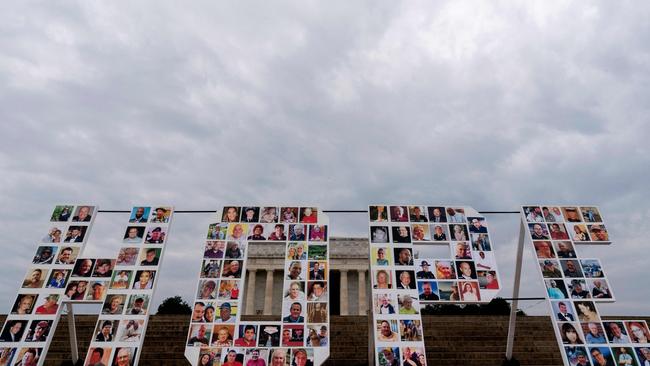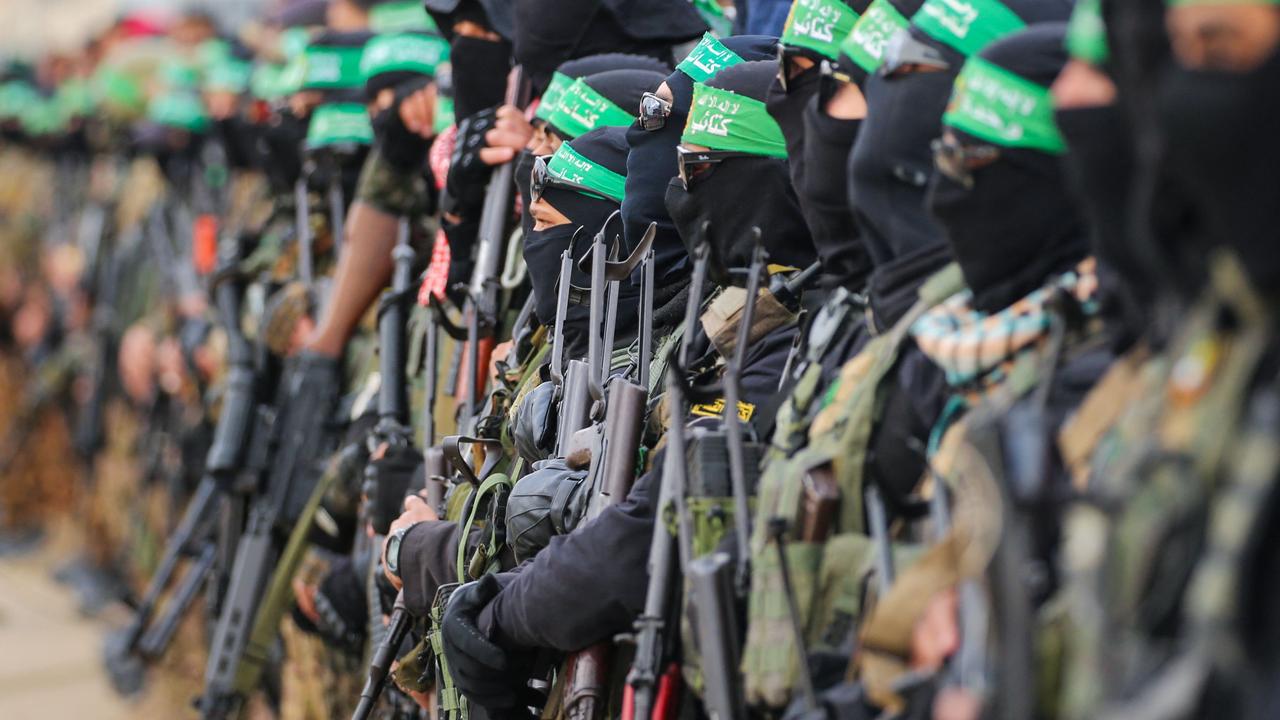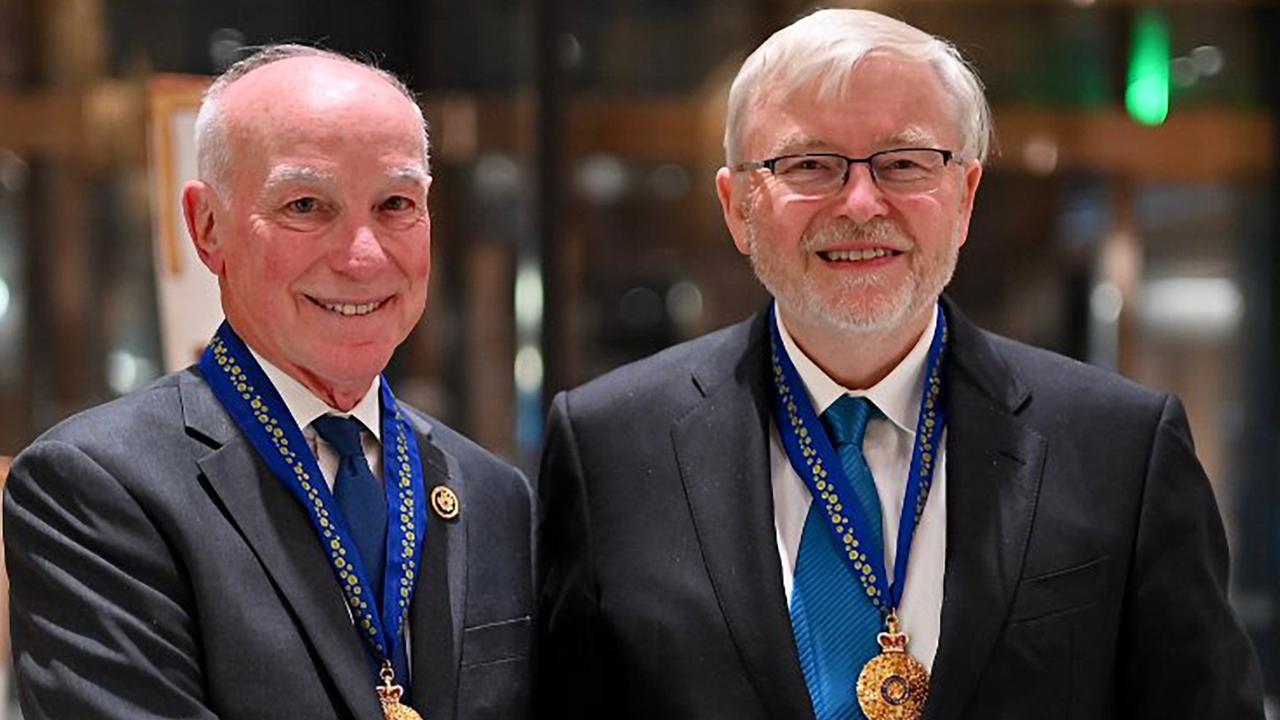Hunkering down in the capital of Covid paranoia
At the end of my first year in Washington I still haven’t been to a single public event in person in a professional capacity. Such is the enthusiasm in this Democrat-dominated city for restrictions.

At the Peregrine cafe about a kilometre from the US Capitol building, masks remain mandatory for customers and staff no matter how many jabs you’ve had, even though the city dumped the requirement almost a month ago after 450-plus days.
Even at a cafe admirably known to employ mainly deaf and hard-of-hearing staff, who presumably benefit from visual cues more than most, practicality be damned. Peregrine’s policy hasn’t changed since October 2020, before anyone had even heard of Omicron, let alone the new stealth variant.
At my local Starbucks, masked staff still yell out names through plexiglas barriers to customers struggling to hear whose order has been called.
The US capital is struggling, like the rest of America, to move on from Covid. More than 60 per cent of Americans say the worst of the pandemic is over, according to a recent NBC poll, and about half want to dump restrictions and live as normal, but few of them appear to live in Washington.
Outdoor masking is common, especially among young people. Socially, although “fully vaccinated”, I keep my unboosted status very quiet indeed. Six weeks after the mandate was dropped, numerous bars and restaurants still require proof of vaccination.
Asked to moderate a free-trade policy panel in DC recently, I jumped at the chance – finally an opportunity to meet people in real life in a professional capacity – only to discover it was on Zoom.
At the end of my first year in Washington I still haven’t been to a single in person seminar, conference, lunch or public event in a professional capacity. That’s not through lack of interest; there simply haven’t been any. When I lived here in 2016 the city was teeming with opportunities to meet top academics, politicians and administration officials – extremely useful for journalists, especially new foreign ones.
I haven’t spoken to a work colleague either. More than six months after reopening in September last year, the office building where I nominally have a desk requires staff to complete a “short course” before coming in “to help you understand what you need to do to protect yourself and your colleagues”. You also have to fill out a “HealthQ” before entering the building after you’ve booked your desk online in advance.
If that’s not safe enough, once you get there masking is compulsory everywhere except at your own desk – unless a colleague moves within 1.8m of you, when both must promptly mask up (cloth is fine though).
What an atmosphere for collaboration. “If anyone says they want to keep their mask on, everyone keeps their mask on,” the instructions state, rounding out a 10-point return to work plan that pretty much quashes the social and professional benefits of being at the office in the first place.
DC, as Americans say, to distinguish it from the western state, is a shell of its former self.
The US version of the Canadian truckers Freedom Convoy, which fizzled out as the media’s attention shifted to Ukraine, wouldn’t have had much traffic to stop in downtown DC.
One doesn’t need a survey to know most of the 200,000-odd US public sector workers who before the pandemic commuted to the city each day, buying lunches and coffees, are still working from home. In November the US Office of Personnel Management updated its guidance for public servants for the first time in a decade to enshrine WFH as a permanent option. For the homebody on full pay, the pandemic has been a boon.
Politics explains part of it. DC is the most left-wing capital in the Western world. More than 92 per cent of DC residents voted for Joe Biden in the 2020 election, more than any other US city. By contrast, even in Canberra the Liberal Party enjoyed about 30 per cent of the primary vote in the 2019 federal election. And Democrats are two to three times likelier than Republicans to believe Covid-19 will kill or hospitalise them, in magnitudes more than the actual likelihood based on evidence.
The Biden administration encourages it. Joe Biden still voluntarily wears masks outside. To attend Australian Trade Minister Dan Tehan’s press conference in DC on Thursday AEDT, journalists had to take a Covid-19 test. A few of us waited for the transcript.
But it’s a wealth thing, too. In similarly sized but poorer Detroit, which also is strongly Democrat and which I visited recently, even Uber drivers didn’t wear masks, contrary to company policy. Last week in DC a cab driver insisted I hold a tissue over my mouth throughout a short trip after I conceded I had “forgot” my mask.
DC should be free to remain a citadel of Covid paranoia if it wants, but it will face the consequences. The city lost 3 per cent of its population in the 12 months to July last year, more than any other US state or territory. Anecdotally, residents and businesses are moving across the Potomac to Arlington, Virginia, or DC-lite, where home prices increased at double the rate (8 per cent) of Washington last year, according to Redfin, an online aggregator.
DC’s outsized influence means Democrat-controlled cities and counties will come under pressure to reimpose increasingly unpopular restrictions if the stealth Omicron variant fuels a seventh Covid wave. Washington could turn out to be the Democratic Party’s worst enemy in the lead-up to the midterm elections in November, when the ruling party is expected to lose its wafer-thin majority to Republicans, who’ve been enjoying electoral success with their “living with Covid” message.



